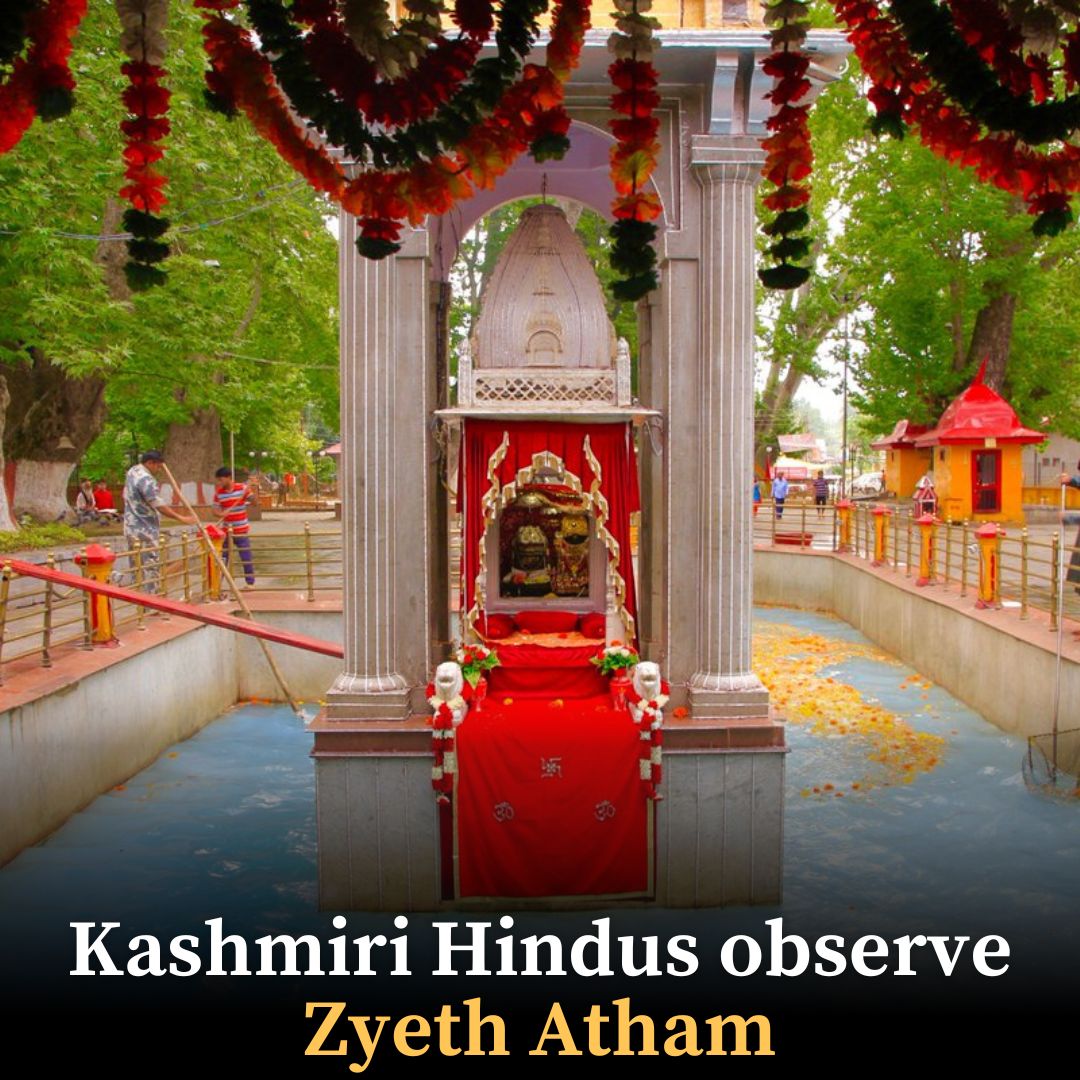Though a regional celebration largely unknown outside the Kashmiri community, Jyeshtha occupies a significant place in contemporary Hindu history.
Jyeshtha Ashtami (Zyeth Atham in Kosur) marks the annual pilgrimage to Tulmul (Kashmir, India) in honour of Kheer Bhavani the Kuladevi (clan deity) of many Kashmiri families. Devi Kheer Bhavani was worshipped in Lanka and was brought to Kashmir by Hanuman due to the fall of Ravan. After the 14th century when Kashmir came under Islamic occupation, ancient temples were destroyed and many replaced with mosques and graveyards (Sita Ram Goel lists 52 sites). With sustained persecution of Kashmiri Hindus, most of these temples remain derelict or under occupation. The Kheer Bhavani temple is one of few to have been re-built and is now active.
After being driven out of Kashmir in 1990 and unable to return for the annual pilgrimage, Kashmiri Hindu refugees across India and the diaspora, started local celebrations of Jyeshtha Ashtami, including here in the UK. These celebrations embody the resilience Hindus have shown in the face of persecution. For centuries they have found inner strength to survive, resist and later re-claim through their intimate and deep connection with their Devatas. Even with temples destroyed and physical murthis smashed, invaders could not destroy the faith of Hindus. In 1898, Swami Vivekananda spent a week meditating at the temple. Back then the temple was derelict and whilst reflecting on its condition, the Swami had a vision of the Devi who reminded him of her enduring presence.
Image credit: Shivansh.ganjoo via Wikimedia Commons

